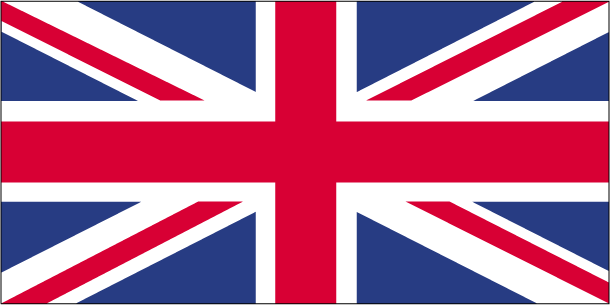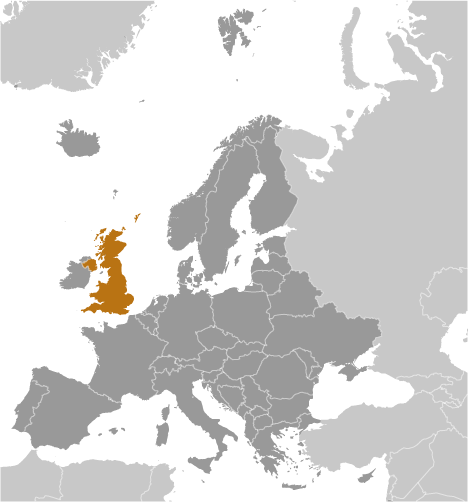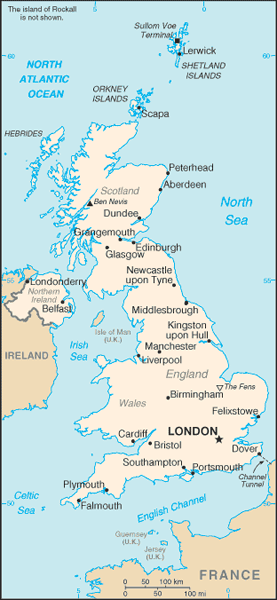The United Kingdom has historically played a leading role in developing parliamentary democracy and in advancing literature and science. At its zenith in the 19th century, the British Empire stretched over one-fourth of the earth's surface. The first half of the 20th century saw the UK's strength seriously depleted in two World Wars and the Irish republic withdraw from the union. The second half witnessed the dismantling of the Empire and the UK rebuilding itself into a modern and prosperous European nation. As one of five permanent members of the UN Security Council, a founding member of NATO, and of the Commonwealth, the UK pursues a global approach to foreign policy. The UK is also an active member of the EU, although it chose to remain outside the Economic and Monetary Union. Devolution and constitutional reform have been significant recent issues in the UK. The Scottish Parliament, the National Assembly for Wales, and the Northern Ireland Assembly were established in 1999, but the latter was suspended until May 2007 due to wrangling over the peace process.
Country Name
Conventional long form:United Kingdom of Great Britain and Northern Ireland; note - Great Britain includes England, Scotland, and Wales
Conventional short form:United Kingdom
abbreviation: UK
Government Type
constitutional monarchy and Commonwealth realm
Capital
Name:London
Geographic coordinates:51 30 N, 0 10 W
Time difference:UTC 0 (5 hours ahead of Washington, DC during Standard Time)
daylight saving time: +1hr, begins last Sunday in March; ends last Sunday in October
note: applies to the United Kingdom proper, not to its overseas dependencies or territories
Administrative divisions
England: 34 counties, 32 London boroughs and 1 City of London or Greater London, 36 metropolitan districts, 46 unitary authorities
counties: Bedfordshire, Buckinghamshire, Cambridgeshire, Cheshire, Cornwall and Isles of Scilly, Cumbria, Derbyshire, Devon, Dorset, Durham, East Sussex, Essex, Gloucestershire, Hampshire, Hertfordshire, Kent, Lancashire, Leicestershire, Lincolnshire, Norfolk, North Yorkshire, Northamptonshire, Northumberland, Nottinghamshire, Oxfordshire, Shropshire, Somerset, Staffordshire, Suffolk, Surrey, Warwickshire, West Sussex, Wiltshire, Worcestershire
London boroughs and City of London or Greater London: Barking and Dagenham, Barnet, Bexley, Brent, Bromley, Camden, Croydon, Ealing, Enfield, Greenwich, Hackney, Hammersmith and Fulham, Haringey, Harrow, Havering, Hillingdon, Hounslow, Islington, Kensington and Chelsea, Kingston upon Thames, Lambeth, Lewisham, City of London, Merton, Newham, Redbridge, Richmond upon Thames, Southwark, Sutton, Tower Hamlets, Waltham Forest, Wandsworth, Westminster
metropolitan districts: Barnsley, Birmingham, Bolton, Bradford, Bury, Calderdale, Coventry, Doncaster, Dudley, Gateshead, Kirklees, Knowlsey, Leeds, Liverpool, Manchester, Newcastle upon Tyne, North Tyneside, Oldham, Rochdale, Rotherham, Salford, Sandwell, Sefton, Sheffield, Solihull, South Tyneside, St. Helens, Stockport, Sunderland, Tameside, Trafford, Wakefield, Walsall, Wigan, Wirral, Wolverhampton
unitary authorities: Bath and North East Somerset, Blackburn with Darwen, Blackpool, Bournemouth, Bracknell Forest, Brighton and Hove, City of Bristol, Darlington, Derby, East Riding of Yorkshire, Halton, Hartlepool, County of Herefordshire, Isle of Wight, City of Kingston upon Hull, Leicester, Luton, Medway, Middlesbrough, Milton Keynes, North East Lincolnshire, North Lincolnshire, North Somerset, Nottingham, Peterborough, Plymouth, Poole, Portsmouth, Reading, Redcar and Cleveland, Rutland, Slough, South Gloucestershire, Southampton, Southend-on-Sea, Stockton-on-Tees, Stoke-on-Trent, Swindon, Telford and Wrekin, Thurrock, Torbay, Warrington, West Berkshire, Windsor and Maidenhead, Wokingham, York
Northern Ireland: 26 district council areas
district council areas: Antrim, Ards, Armagh, Ballymena, Ballymoney, Banbridge, Belfast, Carrickfergus, Castlereagh, Coleraine, Cookstown, Craigavon, Derry, Down, Dungannon, Fermanagh, Larne, Limavady, Lisburn, Magherafelt, Moyle, Newry and Mourne, Newtownabbey, North Down, Omagh, Strabane
Scotland: 32 council areas
council areas: Aberdeen City, Aberdeenshire, Angus, Argyll and Bute, Clackmannanshire, Dumfries and Galloway, Dundee City, East Ayrshire, East Dunbartonshire, East Lothian, East Renfrewshire, City of Edinburgh, Eilean Siar (Western Isles), Falkirk, Fife, Glasgow City, Highland, Inverclyde, Midlothian, Moray, North Ayrshire, North Lanarkshire, Orkney Islands, Perth and Kinross, Renfrewshire, Shetland Islands, South Ayrshire, South Lanarkshire, Stirling, The Scottish Borders, West Dunbartonshire, West Lothian
Wales: 22 unitary authorities
unitary authorities: Blaenau Gwent; Bridgend; Caerphilly; Cardiff; Carmarthenshire; Ceredigion; Conwy; Denbighshire; Flintshire; Gwynedd; Isle of Anglesey; Merthyr Tydfil; Monmouthshire; Neath Port Talbot; Newport; Pembrokeshire; Powys; Rhondda, Cynon, Taff; Swansea; The Vale of Glamorgan; Torfaen; Wrexham
Independence
1927; England has existed as a unified entity since the 10th century; the union between England and Wales, begun in 1284 with the Statute of Rhuddlan, was not formalized until 1536 with an Act of Union; in another Act of Union in 1707, England and Scotland agreed to permanently join as Great Britain; the legislative union of Great Britain and Ireland was implemented in 1801 with the adoption of the name the United Kingdom of Great Britain and Ireland; the Anglo-Irish treaty of 1921 formalized a partition of Ireland; six northern Irish counties remained part of the United Kingdom as Northern Ireland; the current name of the country, the United Kingdom of Great Britain and Northern Ireland, was adopted in 1927
National Holiday
the UK does not celebrate one particular national holiday
Constitution
unwritten; partly statutes, partly common law and practice
Legal system
based on common law tradition with early Roman and modern continental influences; has nonbinding judicial review of Acts of Parliament under the Human Rights Act of 1998; accepts compulsory ICJ jurisdiction with reservations
Suffrage
18 years of age; universal
Executive branch
Chief of state:Queen ELIZABETH II (since 6 February 1952); Heir Apparent Prince CHARLES (son of the queen, born 14 November 1948)
Head of government:Prime Minister David CAMERON (since 11 May 2010)
Cabinet:Cabinet of Ministers appointed by the prime minister
(For more information visit the World Leaders website)
Elections:the monarchy is hereditary; following legislative elections, the leader of the majority party or the leader of the majority coalition usually the prime minister
Legislative branch
bicameral Parliament consists of House of Lords (740 seats; consisting of approximately 622 life peers, 92 hereditary peers, and 26 clergy - as of 14 December 2009) and House of Commons (650 seats since 2010 elections; members elected by popular vote to serve five-year terms unless the House is dissolved earlier)
Elections:House of Lords - no elections (note - in 1999, as provided by the House of Lords Act, elections were held in the House of Lords to determine the 92 hereditary peers who would remain there; elections are held only as vacancies in the hereditary peerage arise); House of Commons - last held on 6 May 2010 (next to be held by June 2015)
Election results:House of Commons - percent of vote by party - Conservative 36.1%, Labor 29%, Liberal Democrats 23%, other 11.9%; seats by party - Conservative 305, Labor 258, Liberal Democrat 57, other 30
note: in 1998 elections were held for a Northern Ireland Assembly (because of unresolved disputes among existing parties, the transfer of power from London to Northern Ireland came only at the end of 1999 and has been suspended four times, the latest occurring in October 2002 and lasting until 8 May 2007); in 1999, the UK held the first elections for a Scottish Parliament and a Welsh Assembly, the most recent of which were held in May 2007
Judicial branch
Supreme Court of the UK (established in October 2009 taking over appellate jurisdiction formerly vested in the House of Lords); Senior Courts of England and Wales (comprising the Court of Appeal, the High Court of Justice, and the Crown Courts); Court of Judicature (Northern Ireland); Scotland's Court of Session and High Court of the Justiciary
Political Parties and Leaders
Conservative [David CAMERON]; Democratic Unionist Party or DUP (Northern Ireland) [Peter ROBINSON]; Labor Party [Harriet HARMAN]; Liberal Democrats (Lib Dems) [Nick CLEGG]; Party of Wales (Plaid Cymru) [Ieuan Wyn JONES]; Scottish National Party or SNP [Alex SALMOND]; Sinn Fein (Northern Ireland) [Gerry ADAMS]; Social Democratic and Labor Party or SDLP (Northern Ireland) [Margaret RICHIE]; Ulster Unionist Party (Northern Ireland) [Sir Reg EMPEY]
Political pressure groups and leaders
Campaign for Nuclear Disarmament; Confederation of British Industry; National Farmers' Union; Trades Union Congress
International organization participation
ADB (nonregional member), AfDB (nonregional member), Arctic Council (observer), Australia Group, BIS, C, CBSS (observer), CDB, CE, CERN, EAPC, EBRD, EIB, ESA, EU, FAO, FATF, G-20, G-5, G-7, G-8, G-10, IADB, IAEA, IBRD, ICAO, ICC, ICCt, ICRM, IDA, IEA, IFAD, IFC, IFRCS, IHO, ILO, IMF, IMO, IMSO, Interpol, IOC, IOM, IPU, ISO, ITSO, ITU, ITUC, MIGA, NATO, NEA, NSG, OAS (observer), OECD, OPCW, OSCE, Paris Club, PCA, PIF (partner), SECI (observer), UN, UN Security Council, UNCTAD, UNESCO, UNHCR, UNIDO, UNMIS, UNRWA, UPU, WCO, WFTU, WHO, WIPO, WMO, WTO, ZC
Diplomatic representation in the US
Chief of mission:Ambassador Sir Nigel E. SHEINWALD
Chancery:3100 Massachusetts Avenue NW, Washington, DC 20008
Telephone:[1] (202) 588-6500
FAX:[1] (202) 588-7870
Consulate(s) general:Atlanta, Boston, Chicago, Houston, Los Angeles, Miami, New York, San Francisco
consulate(s): Dallas, Denver, Orlando
Diplomatic representation from the US
Chief of mission:Ambassador Louis B. SUSMAN
Embassy:24 Grosvenor Square, London, W1A 1AE
Mailing address:PSC 801, Box 40, FPO AE 09498-4040
Telephone:[44] (0) 20 7499-9000
FAX:[44] (0) 20 7629-9124
consulate(s) general: Belfast, Edinburgh
Flag description
blue field with the red cross of Saint George (patron saint of England) edged in white superimposed on the diagonal red cross of Saint Patrick (patron saint of Ireland), which is superimposed on the diagonal white cross of Saint Andrew (patron saint of Scotland); properly known as the Union Flag, but commonly called the Union Jack; the design and colors (especially the Blue Ensign) have been the basis for a number of other flags including other Commonwealth countries and their constituent states or provinces, and British overseas territories










